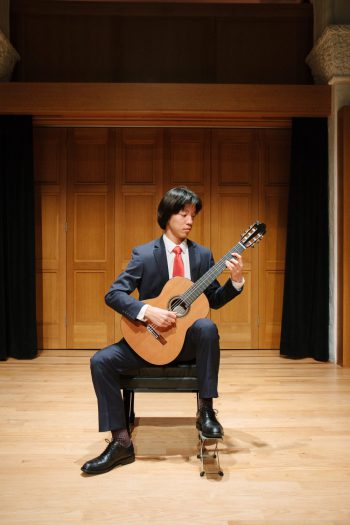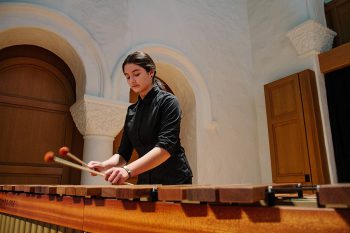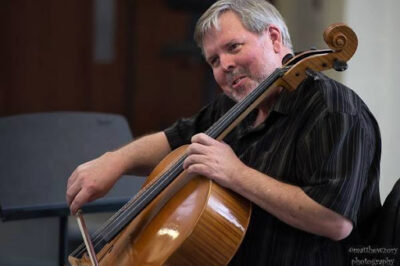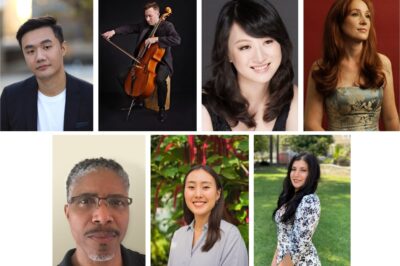Why Juries? | Danielle Ondarza

Danielle Ondarza is a horn player based in Los Angeles. Orchestral highlights including performing with the L.A. Philharmonic, L.A. Opera, and the Los Angeles Master Chorale. In film and television her credits include Coco, Finding Dory, Deadpool, and Agents of S.H.I.E.L.D. She has toured and performed live with a variety of artists, including Michael Buble, Mariah Carey, Josh Groban, Lenny Kravitz, Alicia Keyes, Idina Menzel, and Juan Gabriel. Recording credits include dates for Madonna, Sia, and Justin Timberlake.
Her students are regularly placed in local youth orchestras and honors groups, including the Colburn Youth Orchestra, Pasadena Youth Symphony Orchestra, All-Southern Honor Orchestra, and the All-Southern and All-State Honor Bands; her graduates have been accepted to prestigious music colleges, including the Eastman School of Music and USC’s Thornton School of Music.
Spring is the season for warmer weather, blooming flowers, and the culmination of our academic activities. For school subjects we have final exams; at musical institutions we have juries.
Juries!? The word strikes fear into the heart of many students. But fear not! While juries are a serious endeavor, at PCM we see them as an opportunity to present a student’s progress throughout the year. Read on to learn more about the purpose of juries and what to expect.

Why juries?
- A jury provides the opportunity to perform for a panel of teaching faculty (each of whom have gone through the same process in their formative years). The faculty will provide written feedback to acknowledging a student’s strengths, growth over time, and suggestions for continued improvement.
- Many students are nervous about performing. But ironically, the best way to improve one’s concert presentation is to perform regularly. A jury provides one more opportunity to practice those skills.
- Juries allow students and faculty to document progress over time. Weekly progress is incremental, but over time our growth is sizable. Juries provide an annual checkpoint, allowing students and faculty a chance to acknowledge development over the course of a year.
- Juries provide a working deadline for students.
- Jury requirements are built upon a structured curriculum, ensuring that our students meet long-term goals and that their development remains balanced throughout the course of the year. They also provide the opportunity for faculty to reflect upon what we are teaching and to measure more precisely what students are actually learning.
What is expected of students at juries?
- Appropriate attire: business casual (no jeans, tennis shoes, t-shirts, or other everyday attire).
- A well-prepared performance, including scales, arpeggios, etc. (Note that we are looking for excellent preparation! A note-perfect performance is always our goal, but preparation is the priority.)
- Excellent musical presentation, including thoughtful phrasing, dynamics, style, etc.
Deliberate and knowledgeable collaboration with your accompanist, as appropriate. - Continuous playing, even if you make a mistake (keep going – it’s a performance!).

How should I prepare for my jury?
- Speak with your teacher several weeks before your jury to set clear expectations for both your technical requirements (scales, arpeggios, etc.) and your repertoire list. Make a written list of elements, including metronome markings, articulation requirements, and any other information you will need for consistent practice.
- Beginning two weeks before your jury, run through your complete jury list every day at the start of your practice session as if it was a performance. After the run-through, go back and work on passages that need attention.
- Be inspired by great performances! Listen to any recordings of your pieces that are available multiple times a week to get the sound of a great performance in your ear.
Tips for a successful jury experience:
- Dress for success! Wear comfortable clothing that demonstrates respect for the panel and reflects the mindful work you have done over the course of the year.
- Arrive at PCM early enough for a relaxed warm up. Play tricky passages as needed, but be careful not to play too much before your jury. (Too much warm up or practice before a performance leads to tired chops.)
- Drink plenty of water in the days before your jury. Bring a snack to eat before you play and a water bottle for continued hydration.
- Be sure your instrument is in good working condition.
- Enjoy presenting your progress to the faculty panel!
Jury week involves a significant time commitment from the PCM faculty. As jury panelists, we listen to students from our colleagues’ studios as well as our own, providing constructive criticism to every student. The feedback of multiple faculty members adds exponential value to the jury experience. This process requires that juries be counted as one lesson for the quarter.
On behalf of the Winds, Brass, and Percussion faculty, we look forward to hearing your jury performances in May!



